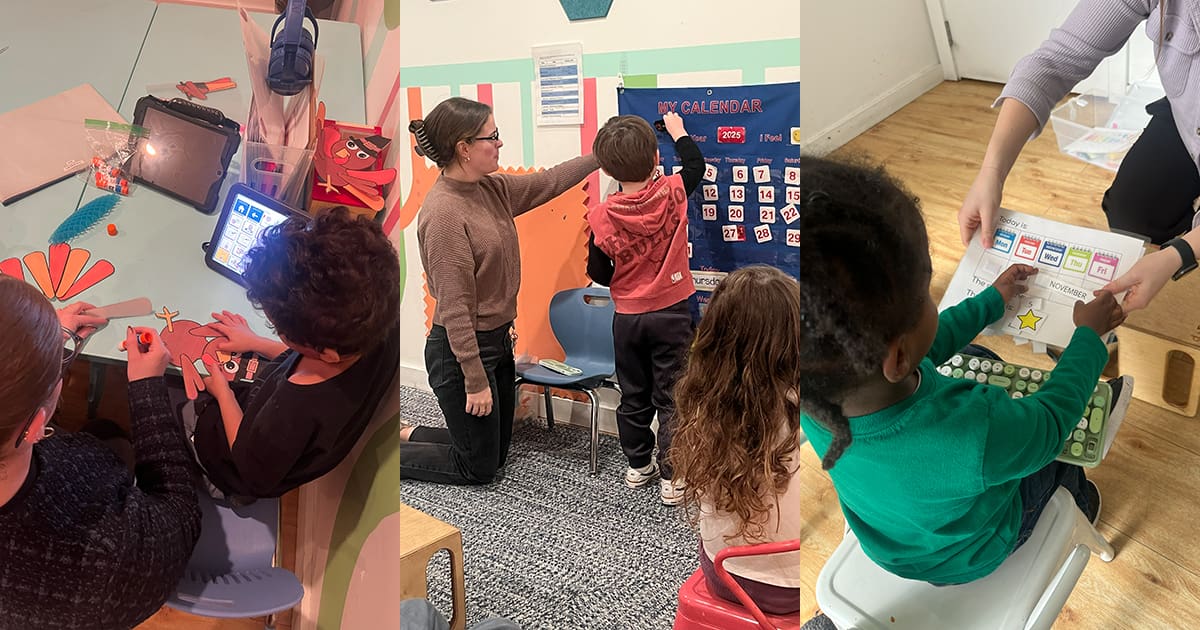Share this Post

When you’re searching for the right autism therapy services for your child, you’ll come across a variety of professionals dedicated to providing the best possible care. Two important credentials you may encounter are BCBA (Board Certified Behavior Analyst) and BCBA-D (Board Certified Behavior Analyst-Doctoral). Both of these professionals play critical roles in delivering evidence-based Applied Behavior Analysis (ABA) therapy, but understanding the difference between them can help you make informed decisions about your child’s treatment plan.
This guide will break down the distinctions between a BCBA and a BCBA-D, explore how they contribute to your child’s progress, and offer compassionate advice on finding the right support for your family.
What is a BCBA?
A Board Certified Behavior Analyst (BCBA) is a highly trained professional who specializes in using ABA therapy to teach new skills, reduce problem behaviors, and help children with autism achieve developmental milestones. BCBAs work directly with children and families to create individualized treatment plans based on the unique needs of the child.
To earn the BCBA credential, a professional must:
- Hold at least a master’s degree in behavior analysis, psychology, education, or a related field
- Complete supervised fieldwork hours
- Pass a comprehensive certification exam administered by the Behavior Analyst Certification Board (BACB)
What is a BCBA-D?
A Board Certified Behavior Analyst-Doctoral (BCBA-D) holds all the qualifications of a BCBA but has also earned a doctoral degree in behavior analysis, psychology, or a closely related discipline. The “D” in their title indicates that they have advanced knowledge in the field due to their additional education, research, and training.
To become a BCBA-D, a professional must:
- Earn a doctorate in behavior analysis or a related field
- Meet all the requirements for BCBA certification
- Often engage in research, teaching, or leadership roles within the field of ABA
While BCBAs and BCBA-Ds share many responsibilities, their roles can differ depending on the setting and specific needs of the child.
Key Differences Between a BCBA and a BCBA-D
Although both BCBAs and BCBA-Ds share the goal of using evidence-based ABA therapy to support children’s development, their qualifications and roles differ in several key ways.
A BCBA holds a master’s degree in a related field such as behavior analysis, psychology, or education. They complete extensive training and supervised fieldwork before passing the certification exam. Their primary focus is on designing and implementing individualized treatment plans, working directly with children and families, and supervising RBTs (Registered Behavior Technicians) who deliver one-on-one therapy.
A BCBA-D, on the other hand, has earned a doctoral degree in behavior analysis or a related discipline, which provides them with an advanced understanding of research and clinical practice. While they are fully qualified to perform the same tasks as a BCBA, BCBA-Ds often take on additional responsibilities such as leading research projects, developing innovative therapy programs, and offering high-level consultations for complex cases.
Another key difference is the scope of their work. BCBAs are typically hands-on with day-to-day therapy and progress monitoring, while BCBA-Ds may focus on broader program development, mentorship of other professionals, and ensuring that treatment aligns with the latest research in the field. This collaboration between BCBAs and BCBA-Ds ensures that children receive comprehensive, well-rounded care tailored to their unique needs.
When Should You Work with a BCBA?
A BCBA is often the primary professional involved in a child’s day-to-day ABA therapy. They:
- Assess the child’s strengths and challenges
- Create individualized treatment plans tailored to developmental goals
- Supervise RBTs who provide one-on-one therapy
- Monitor progress and adjust interventions as needed
- Collaborate with parents, teachers, and other caregivers to ensure consistency across environments
Best for: Families seeking hands-on, individualized therapy where progress is closely monitored and adjusted to meet the child’s evolving needs.
When Should You Consider Working with a BCBA-D?
While a BCBA-D can perform the same duties as a BCBA, they are typically called upon for cases that require a higher level of expertise. They may:
- Oversee complex cases involving multiple developmental or behavioral concerns
- Provide second opinions or consultations for challenging cases
- Lead research projects or pilot programs to introduce innovative therapies
- Mentor and train BCBAs and RBTs in advanced techniques
- Assist in program-wide development or organizational leadership within clinics and schools
Best for: Families seeking specialized guidance for complex cases, or when their child’s therapy program could benefit from advanced clinical oversight or cutting-edge interventions.
How Do BCBA and BCBA-D Professionals Work Together?
In many therapy settings, BCBA and BCBA-D professionals work as part of a team to provide comprehensive support. For example:
- A BCBA may oversee the daily implementation of your child’s therapy program, supervise RBTs, and collaborate closely with you to track progress.
- A BCBA-D may be involved in reviewing the program’s overall effectiveness, providing high-level consultations, or offering new intervention ideas based on research.
This collaborative model ensures that your child benefits from both practical, hands-on therapy and innovative approaches grounded in the latest scientific advancements.
Finding the Right Professional for Your Child
When choosing between a BCBA and BCBA-D, the most important consideration is your child’s individual needs. Here are a few questions to guide your decision:
- Does my child have a complex diagnosis or multiple developmental needs? If so, involving a BCBA-D for additional oversight may be beneficial.
- Is the current therapy program meeting my child’s goals? If progress has plateaued, consulting a BCBA-D may provide new strategies or insights.
- What level of day-to-day involvement do I need from the professional? For ongoing, hands-on involvement, a BCBA is typically the right fit.
Remember that you don’t have to choose between the two. Many successful programs involve both BCBAs and BCBA-Ds working together to support a child’s growth.
FAQs: Understanding BCBA and BCBA-D Roles
Q: Will my child receive less attention if a BCBA-D is involved instead of a BCBA?
A: No. A BCBA-D typically provides additional oversight, but day-to-day therapy is still managed by a BCBA or RBT who works closely with your child.
Q: Is therapy with a BCBA-D more expensive than with a BCBA?
A: It depends on the therapy center and how the BCBA-D is involved. In many cases, consultations with a BCBA-D are included as part of the overall treatment plan.
Q: Should I switch to a BCBA-D if my child isn’t making progress?
A: Not necessarily. A BCBA may be able to adjust the program and address any challenges. However, a consultation with a BCBA-D could provide valuable insights in complex cases.
Conclusion: The Right Support for Your Child’s Success
Whether you’re working with a BCBA or a BCBA-D, both professionals are dedicated to helping children with autism reach their full potential. Their collaborative approach ensures that every child receives personalized, evidence-based care tailored to their developmental goals.
At CST Academy, we bring together experienced BCBAs and BCBA-Ds to provide comprehensive support for your child. Our team works closely with families to create customized programs that foster growth, independence, and success. Whether your child is just starting therapy or needs advanced clinical oversight, we’re here to help.
Discover Our Pediatric Therapy & Autism Care
ABA Therapy
Support for children with autism.
Autism Evaluation
Expert assessments to identify child needs.
Pediatric Therapy Services
Speech, Occupational, Feeding, and Physical Therapy.
Therapeutic Preschool
A classroom environment designed for early learners with unique needs.

Find the Best Care for Your Child




